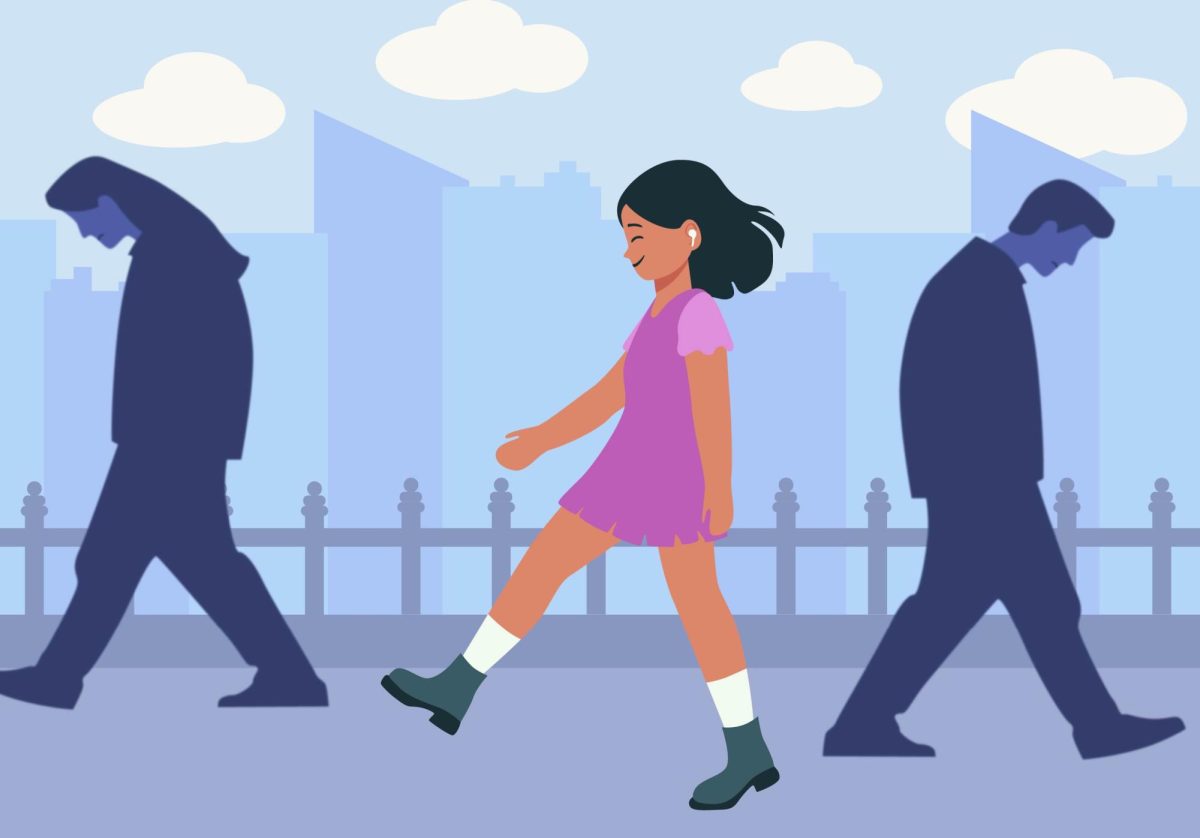Straight “A” students turned bad, nerd turned stud, submissive turned rebellious, bland turned vicarious, overachieving Asian-Americans turned murderous?
Justin Lin’s controversial new film, “Better Luck Tomorrow,” has Asian-Americans across the coasts raving about finally puncturing the model minority myth that Asians are honorary whites whose boldest self-defense is writing poetry on the prison walls of Angel Island. Others, however, are outraged that this film plays off the stereotype of Asian-Americans being either decathlon nerds or ass-kicking thugs but never just average. As I sat in Coffman Union’s theater showing last week, it struck me that both sides miss the point.
Dwelling on the model-minority myth runs the risk of marginalizing “Better Luck Tomorrow” as a minority film with little value outside the Asian-American community. On the surface, the film revolves around a group of over-achieving, materially fulfilled, but emotionally empty, Asian-American high school students who throw away their Ivy League futures for an addictive life of theft, robbery and, ultimately, murder by forming an Asian mafia. However, underneath the skeletal plot the film is plump with universal themes such as identity seeking, gun violence and spiritual depression – social ills that paralyze not just Asian-American youths but Americans in general.
In many ways, the twisted empowerment that Ben, Virgil, Han and Derek found in murdering their peer is the same type of psyche that drove Columbine shooters to open fire only two weeks before graduation. In fact, “Better Luck Tomorrow” is based on a true Orange County, Calif., murder 10 years ago of Asian-American honor student Stuart Tay by four of his peers, one of whom was headed to Harvard.
These incidents reveal that somewhere down the line, U.S. high schools’ education system is gaping with holes. You can go to a counselor if you want to switch classes, but there’s nowhere to turn to besides useless hazing policies written in school booklets if you’re socially ostracized. You can volunteer to play piano for 10 hours each week in nursing homes but have no idea what part of being a citizen obligates you to volunteer.
And what about identity seeking? Ben’s bland, inhibited persona is reminiscent of Edward Norton’s character in “Fight Club,” except his alter ego was not Brad Pitt but the Asian mafia. Norton’s obsession with ordering furniture from catalogs parallels Ben’s obsession with the vocabulary section of the SATs – both are extrinsic pursuits driven by success defined by U.S. culture, albeit for two different age groups. Norton seeks social belonging in therapy groups but ultimately finds release in the fight club. In the same way, Ben seeks collective identity in the school basketball team but finds it in gang violence.
So why draw all of these parallels between “Better Luck Tomorrow,” and Columbine, or “Fight Club”? Ultimately, the inclusion of minority films into the mainstream film industry is not just about getting representation. Rather, audiences of all races should give films such as “Better Luck Tomorrow” a chance because once you start making the connections to current events, you will no longer ask, “What did I learn about their culture?” but, “What did I learn about myself and a multi-faceted, multi-perspective U.S. culture? How does Justin Lin’s (an Asian-American director running a low-budget film) depiction of violence differ from or enrich Michael Moore’s documentary, ‘Bowling for Columbine’?”
If we don’t think a film pertains to us because it features an “all-minority cast,” we must ask ourselves why. After all, as an Asian-American woman, I still love “Chicago,” even if it does feature two white actresses.
In the end, it is a marvel that Justin Lin’s film was picked up and mass-marketed by MTV. It is the first Asian-directed film since the 1993 hit “The Joy Luck Club” to be popularized in the United States. What’s more, Lin didn’t have to write about elaborate cooking (“Eat Drink Man Woman”), a three-generation family saga (“The Joy Luck Club”), the Vietnam War or feature the over-sexualized Chinese actress Gong Li.
Considering all of this, it is high time to stop bickering over whether the film expels the model minority myth or perpetuates already existing stereotypes and embrace “Better Luck Tomorrow” as an all-American success.
Diana Fu’s column appears alternate Wednesdays. She welcomes comments at fuxx0046@umn.edu







